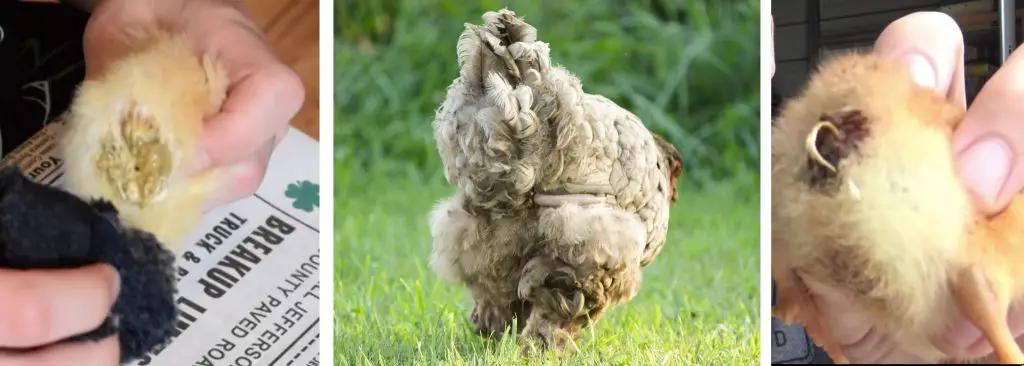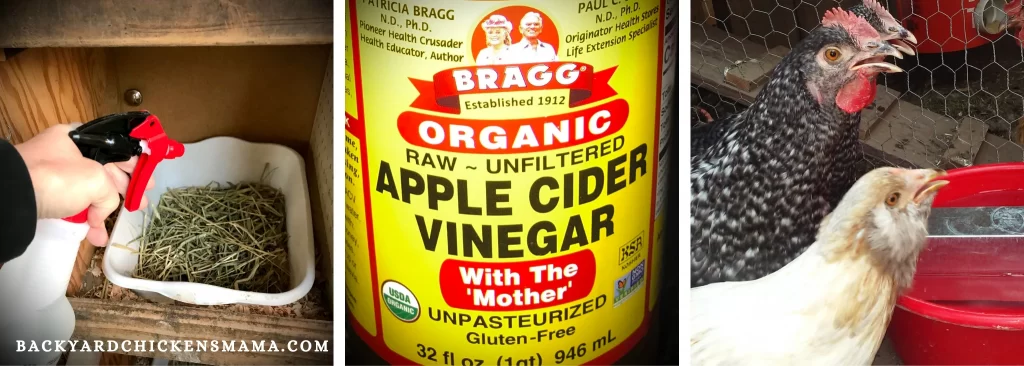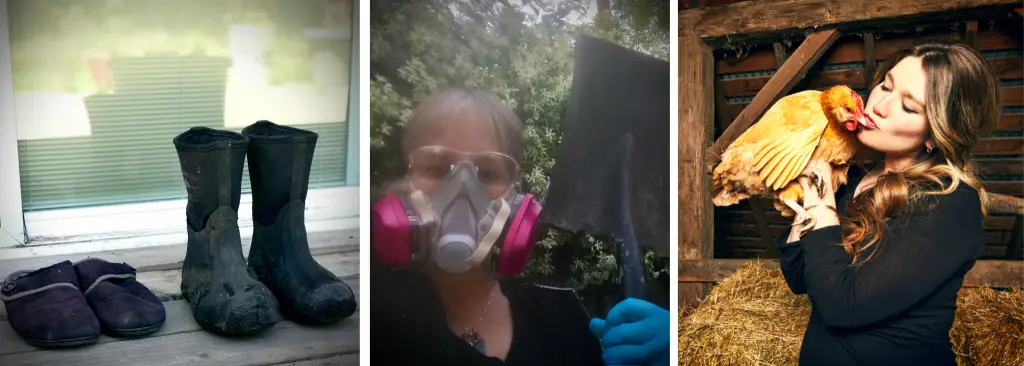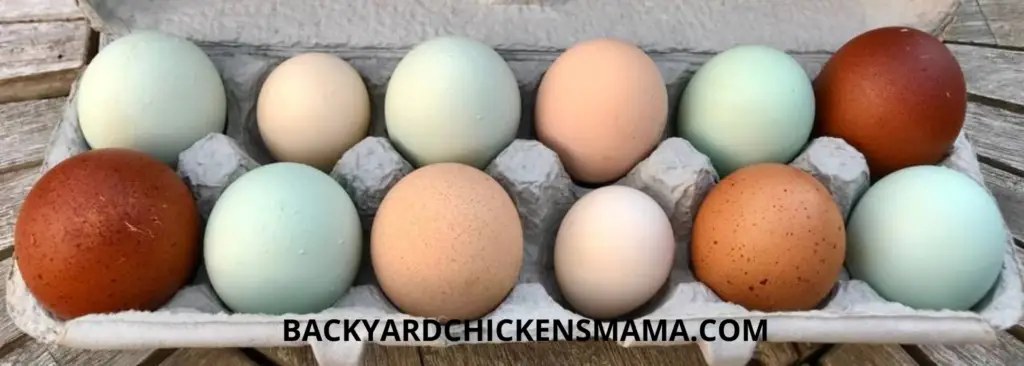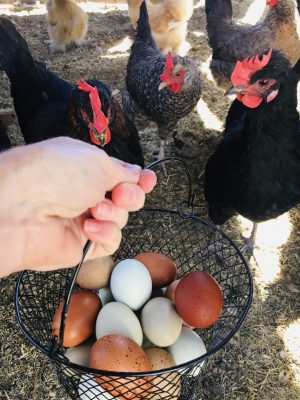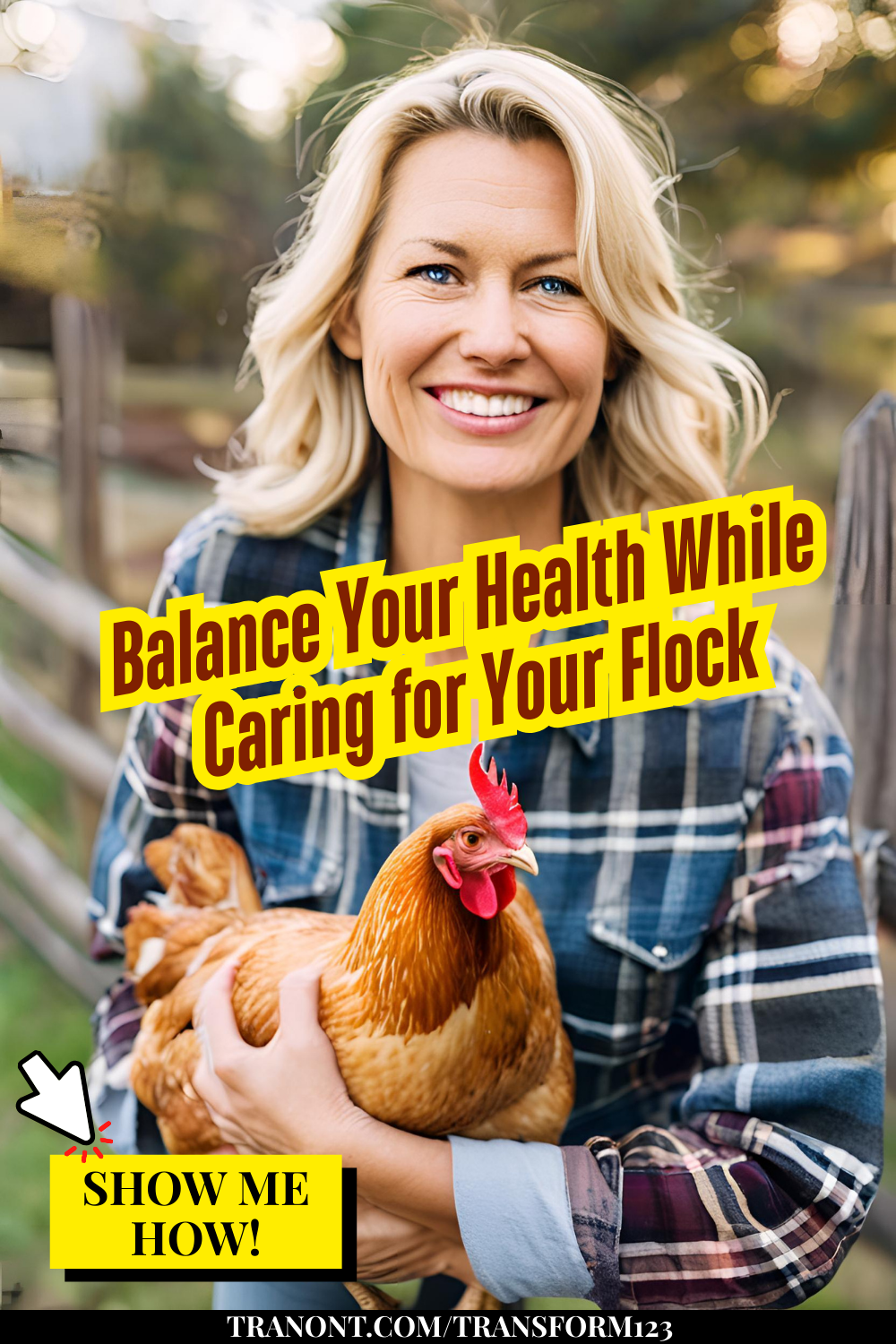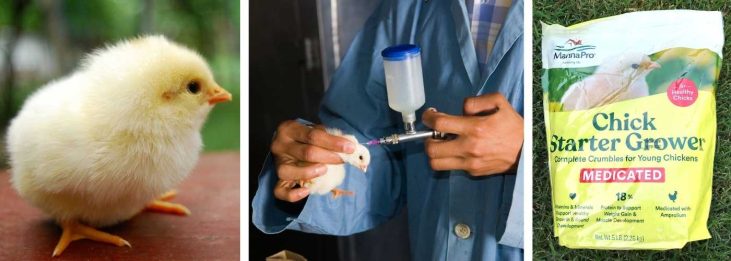
Coccidiosis in unvaccinated baby chicks is more common than you think. It is important to recognize the symptoms and begin treatment right away. The quicker you begin treatment, the better the odds of survival. But do you know how to treat Coccidiosis in chickens?
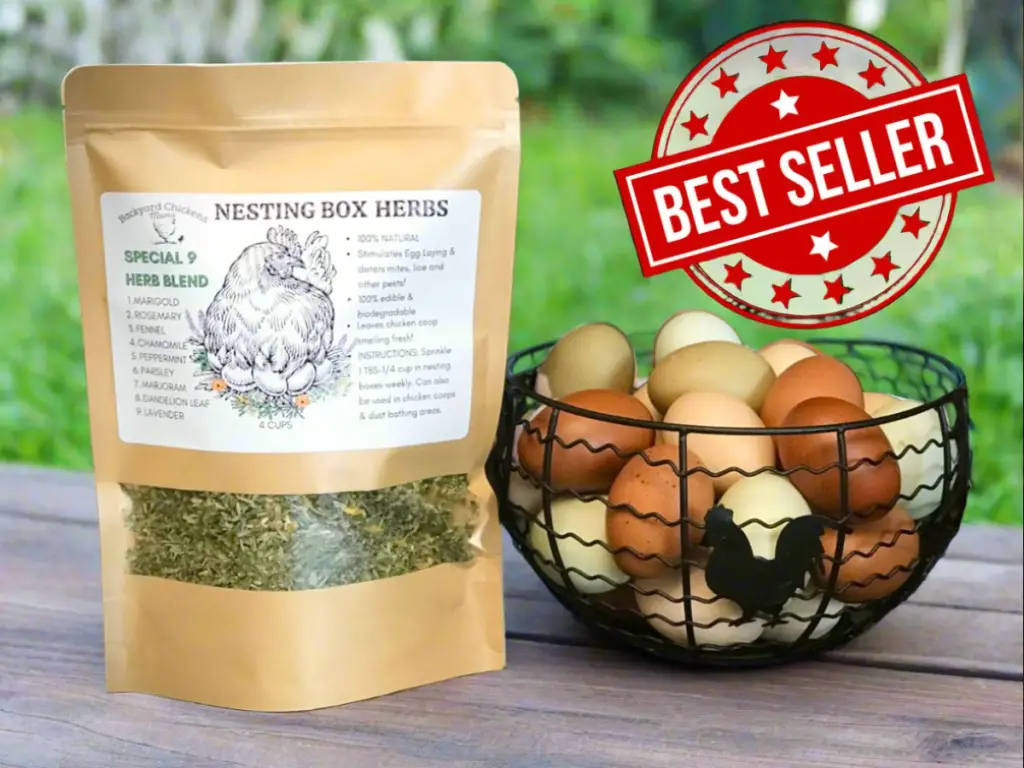
Increases egg laying naturally.
- Improves chicken health.
- Deters parasites: mites, lice, fleas & flies as well as mice, rats, raccoons, coyotes, opossums and more!
- On SALE!
- Shop: Nesting Box Herbs
What is Coccidiosis?
Before we get into how to treat Coccidiosis in chickens, it is important to know what it is and that all chickens have this parasite in their GI tract. With your help, you can stop it from getting out of hand and causing Coccidiosis.
Coccidia are protozoa or parasites that can be found naturally in the dirt or from adult chickens feces. Most adult chickens have been exposed to the protozoa in the past, but have developed immunity.
When these parasites get out of hand, it can cause inflammation and damage in a chickens intestinal tract, causing it to have difficulty absorbing nutrients from its food. This disease is called Coccidiosis.

Increases egg laying naturally.
- Improves chicken health.
- Deters parasites: mites, lice, fleas & flies as well as mice, rats, raccoons, coyotes, opossums and more!
- On SALE!
- Shop: Nesting Box Herbs
5 Simple Ways to Treat Coccidiosis in Chickens
- Prevention: Having Hatchery Vaccinate Against Coccidiosis
- Medicated Chick Starter
- Corid in Drinking Water
- Apple Cider Vinegar
- Flagyl
What are the Signs and Symptoms of Coccidiosis in Chickens?
- Knowing what the signs and symptoms of Coccidiosis is very important. It is important so you can start treatment and prevent it from spreading to your whole flock.
- Coccidiosis is most common in chicks under the age of 8 weeks, but can occur in older chickens too.
- Important: If one chick has it, the whole flock needs to be treated.
“Coccidiosis is a perfect example of the “weak sister” law in parasitology—this law states that when a group of animals are parasitized, the most seriously affected bring attention to the problem and act as a signal that the entire group needs treatment.”
Science Direct
| SIGNS AND SYMPTOMS OF COCCIDIOSIS IN CHICKENS |
|---|
| DECREASED APPETITE (EATING LESS) |
| WITHDRAWN (CHICKEN OFF ON ITS OWN) |
| MUCOUS OR BLOOD IN DIARRHEA |
| QUICK WEIGHT LOSS |
| UNKEMPT WITH RUFFLED FEATHERS |
| PALE COMB AND WATTLE |
| DECREASED YELLOWING OF SHANKS |
| THEY MAY ACT CHILLED |
| DEATH |
1. Prevention: Having Hatchery Vaccinate Against Coccidiosis
The number one way you can stop Coccidiosis from occurring is by vaccinating your chicks. Hatcheries will do this when the chicks are 1-3 days old.
Hatcheries will use one of many different ways to vaccinate day old chicks.
| 3 METHODS HATCHERIES USE TO VACCINATE AGAINST COCCIDIOSIS |
|---|
| 1. MASS SPRAYING OF CHICKENS WITH A COCCIDIOSTAT. |
| 2. SPRAYING OF CHICKEN FEED WITH A COCCIDIOSTAT. |
| 3. ADDING OF A COCCIDIOSTAT TO THE CHICKEN WATER. |
Vaccinating chicks for Coccidiosis with a coccidiostat helps slow the growth of oocysts that they come into contact with in the environment. This gives them protection, but allows them to build immunity at the same time.
2. Medicated Chick Starter: How to Treat Coccidiosis in Chickens
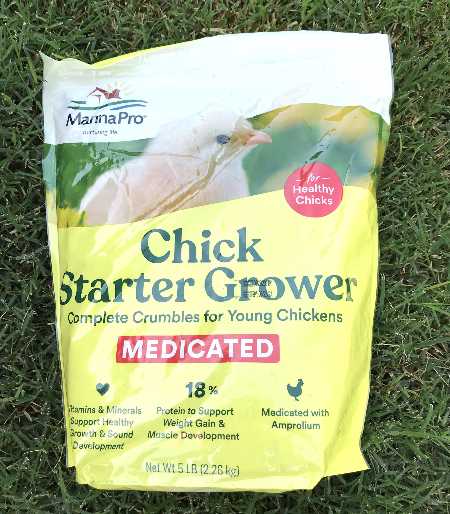
Medicated chick starter is a medicated chick feed that contains amprolium. It is used to help prevent Coccidiosis in young chicks.
Medicated Chick Starter with amprolium works by stopping the uptake of thiamine in coccidia. In other words, it stops the cocci (the parasites) from multiplying inside their gastrointestinal tract.
If you choose to give your baby chicks medicated chick feed, it is important to expose them to dirt from their future chicken run. This is the only way the medicated feed will be effective.
This will expose your chicks to low levels of cocci in the soil and allow them to gradually build up an immunity to the cocci.
How to Treat Coccidiosis with Medicated Chick Starter
- Start offering your chicks (from day 1) a small bowl of dirt from their future chicken run along with the medicated chick starter feed.
- Change this dish of soil out periodically with new soil from their future run and continue to give them medicated chicken feed daily for their first 5 weeks.
- For the 6th week, gradually wean them off of the medicated feed by mixing it with regular chick starter feed.
- By 6 weeks, they are fully feathered, eating unmedicated chick starter feed and should be out in their new chicken run.
3. Corid in Drinking Water: How to Treat Coccidiosis in Chickens
Corid is a name brand for Amprocilin. It is sold either in liquid or powdered form and added to the chickens water for several days.
- (Follow manufacturers instructions.) Add 2 tsp of the liquid form or 1 1/2 tsp of the powdered form of Corid to each gallon of water. Offer only this as your chickens drinking source for 7 full days.
- Corid kills both the good and bad bacteria in the gut. It is best to add a probiotic at the same time to help increase the good bacteria.
- Don’t add vitamins until after you are finished with the Corid treatment. It can interfere with the effectiveness of the antibiotic.
- Chickens usually respond quickly with this treatment. Results begin to show within 24 hours.
- According to the FDA, it is safe to eat the eggs from hens being treated with Corid.
4. Apple Cider Vinegar: How to Treat Coccidiosis in Chickens
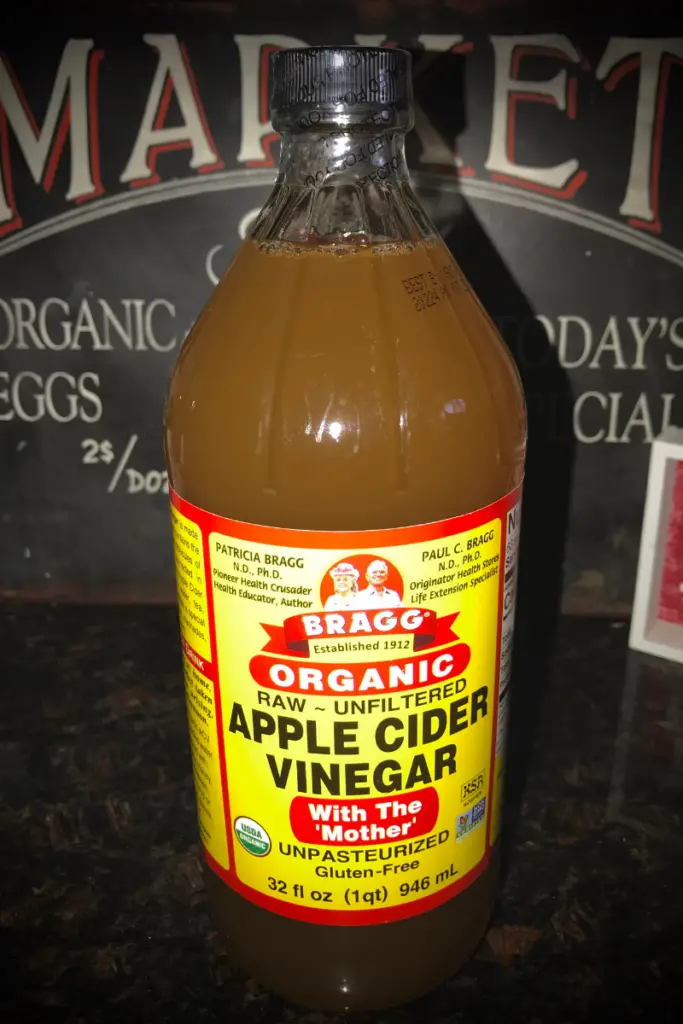
The use of apple cider vinegar, ACV, is not an approved treatment to prevent Coccidiosis. Even though it is not approved, many backyard chicken owners use ACV to help prevent and treat Coccidiosis in their flock. It has been used by many with good success.
If you choose to use ACV, you want to find the one that says, “With the Mother.” Bragg is a common brand that contains “the Mother.”
“With the Mother” means that it hasn’t been filtered. It is raw, organic and unpasteurized. This form is cloudy and is what provides your chickens with healthy probiotics (good bacteria). This is what is needed to keep the gut in balance.
Don’t be alarmed if you see a stringy substance floating in there. This is “the Mother,” and what will provide your chickens with the beneficial gut bacteria, probiotics.
How Does Apple Cider Vinegar Help to Prevent and Treat Coccidiosis?
“The apple cider vinegar helps to kill harmful bacteria in your chickens gut. It helps by regulating both the good and the bad bacteria within your chickens gut.”
12 Unique Benefits of ACV-Improve Your Chickens Health
Apple Cider Vinegar Dosage to Treat or Prevent Coccidiosis
- Add 1 TBS to each gallon of your chickens drinking water.
- During treatment, this should be your chickens only source of water.
- How often should I give my chickens apple cider vinegar? Apple cider vinegar should be given for a period of one week.
- This can be repeated on a monthly basis.
- Because ACV is acidic, you shouldn’t add it to metal waterers. It will cause them to rust.
5. Flagyl: How to Treat Coccidiosis in Chickens
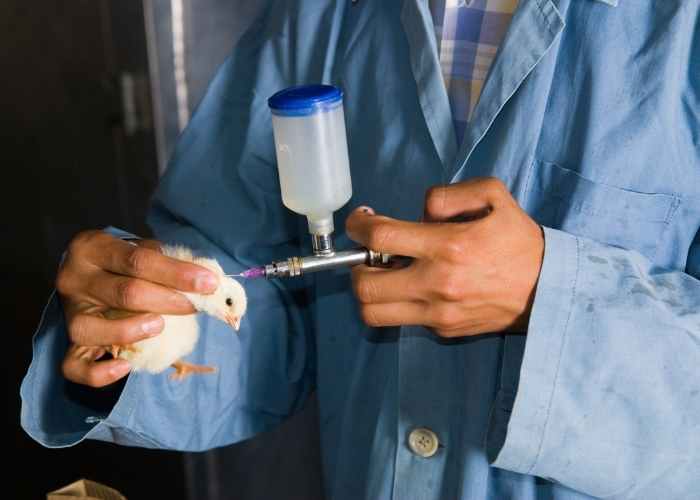
Flagyl is the brand name for Metronidazole. This is an antibiotic medication that is used to both treat and prevent Coccidiosis. It does so by killing any gastrointestinal protozoal flagellates. In other words, it kills the harmful bacteria in the gut, stopping it from multiplying and getting out of hand.
This is either given as an intramuscular injection or in tablet form, by mouth.
Follow the manufacturers instructions, but it is usually given as an injection, powder in drinking water or tablet for a series of 5-7 days.
Because it kills both the beneficial bacteria and the bad bacteria, it is recommended to start a probiotic after you are finished with the 5-7 days of this antibiotic.
Tips to Prevent Coccidiosis Outbreaks
| CHOOSE VACCINATION METHOD | ADDITIONAL TIPS TO DECREASE LIKELIHOOD OF COCCIDIOSIS |
|---|---|
| PURCHASE CHICKS VACCINATED AGAINST COCCIDIOSIS | FROM DAY 1 OFFER CHICKS DIRT FROM FUTURE COOP |
| IF YOU DIDN’T VACCINATE, GIVE MEDICATED FEED WITH AMPROLIUM. | KEEP CHICKEN FEEDERS AND WATERERS CLEAN OF FECES. |
| USE CORID. | KEEP YOUR COOP DRY. |
| USE APPLE CIDER VINEGAR. | PROVIDE SUFFICIENT SPACE. OVERCROWDING INCREASES LIKELIHOOD OF DISEASE. |
| USE FLAGYL. | QUARANTINE NEW CHICKENS FOR 30 DAYS. |
F.A.Q. About Coccidiosis in Chickens
Can humans get coccidiosis from chickens?
No, humans cannot get coccidiosis from chickens because it is species specific. This also means that the coccidia that chickens get cannot be passed to ducks, guinea fowls or turkeys and visa versa. There are several different strains of Eimeria that chickens can contract. These are 7 of the most common:
| 7 COMMON STRAINS OF THE COCCIDIA PARASITE EIMERIA IN CHICKENS |
|---|
| 1. E. MAXIMA |
| 2. E. ADENOEIDES |
| 3. E. ACERVULINA |
| 4. E. MELEAGRIMITIS |
| 5. E. BRUNETTI |
| 6. E. NECATRIX |
| 7. E. TENELLA |
Can you eat eggs from chickens with coccidia?
According to the FDA, it is safe for humans to eat eggs from chickens that are being treated for Coccidiosis with Corid (Amprolium). There isn’t a withdrawal period requirement before eating the eggs or meat after treatment with Amprolium either.
How common is coccidiosis in chickens?
Coccidiosis is the most common poultry illness. Most chickens have coccidia in their intestines, but have been properly exposed to it and have it under control. They become immune to it. Adult chickens that are immune to the coccidia can still pass it on to other chickens.
What does coccidiosis poop look like?
Coccidiosis poop is watery and may contain mucous or blood in the droppings. Normal chickens can also have blood in their feces. A hen can have blood in the droppings from passing a very large egg. It is best to also watch their behavior for other common symptoms of coccidiosis.
Can a chicken recover from coccidiosis?
A chicken can fully recover from coccidiosis, especially if it is caught early and treatment is started right away. All chickens carry cocci in their gastrointestinal tract, but if they are vaccinated and their environment is kept with generally low levels of new coccidia parasites, their immune system should be able to fight it off without developing symptoms.
CONCLUSION: How to Treat Coccidiosis in Chickens-5 Simple Ways
Coccidiosis is the most common disease among chickens. It can be deadly if it isn’t treated right away, so it is important to recognize the symptoms.
The sooner you catch it, the better the odds of survival are. It is very treatable and there are many different methods of treatment to choose from.
Other than vaccinating your day old chicks, there are many things that as a chicken owner you can do to help your flock from having an outbreak.
Keep your feeders and waterers clean of feces, provide enough space for your flock, keep the coop dry and isolate new flock members for a minimum of 30 days before integrating.
Prevention is a whole lot easier than having to treat your whole flock for Coccidiosis!

